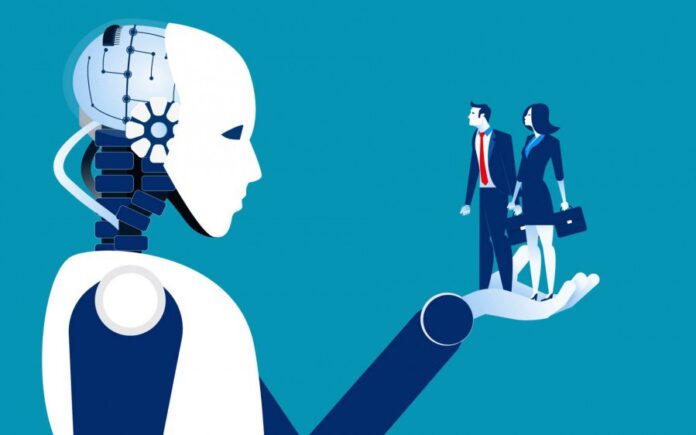The rapid advancements in artificial intelligence (AI) are reshaping industries across the globe. As we approach 2025, the integration of AI into automation systems is expected to accelerate at an unprecedented pace. From healthcare to manufacturing and finance, automation powered by AI is set to revolutionize how businesses operate and how work is performed. Here’s a breakdown of the latest trends in AI and what the future of automation holds.
1. AI-Powered Workforce Transformation
AI is already making waves in automating routine and repetitive tasks, but by 2025, the shift toward AI-driven workforce transformation will be even more profound. Tasks like data entry, customer support, and supply chain management will become increasingly automated, allowing human workers to focus on more complex, creative, and strategic roles. For instance, AI tools will assist in decision-making, predictive analytics, and even content creation, changing the way businesses operate from the ground up.
2. Smart Manufacturing and Robotics
The manufacturing sector is poised for significant transformation as AI-powered robotics and automation technologies become more sophisticated. By 2025, we can expect more factories to adopt autonomous robots for assembly lines, quality control, and material handling. These robots will not only be faster and more efficient than their human counterparts but will also operate with a higher degree of precision and reliability. Smart factories will feature connected systems that can monitor and optimize production in real-time, reducing downtime and increasing productivity.
3. Autonomous Vehicles and Transportation
AI is at the heart of the autonomous vehicle revolution. By 2025, self-driving cars, trucks, and delivery drones are expected to be commonplace, significantly altering the transportation and logistics industries. Autonomous vehicles will improve safety, reduce traffic congestion, and lower fuel consumption, but they will also disrupt industries related to driving, from delivery services to traditional taxi companies. AI will also enable more efficient traffic management systems, reducing congestion and travel times for commuters.
4. AI in Healthcare Automation
In healthcare, AI is already playing a pivotal role in automating routine tasks such as administrative processes, diagnosis, and patient monitoring. By 2025, we can expect AI to drive even more automation in medical research, diagnostics, and treatment planning. AI-powered diagnostic tools will be able to analyze medical images and predict patient outcomes with greater accuracy than ever before. Virtual assistants, chatbots, and AI-powered patient monitoring systems will help healthcare providers deliver faster, more personalized care while reducing the strain on human workers.
5. Finance and AI-Driven Automation
In the financial services sector, automation powered by AI is set to reshape everything from trading and risk management to customer service. By 2025, AI algorithms will be able to conduct complex financial analysis and identify investment opportunities much faster than humans can. AI chatbots will be handling customer inquiries, making transactions, and providing personalized financial advice. Moreover, AI will play a critical role in detecting fraud and improving cybersecurity in real-time, helping to keep financial institutions and their customers secure.
6. AI-Driven Content Creation and Media
The media and entertainment industry is also experiencing a shift with AI automation. By 2025, AI will be capable of generating high-quality content, from news articles and social media posts to films and music. AI algorithms will analyze audience preferences to create personalized experiences and recommend content. In the film industry, AI could be used to assist in scriptwriting, video editing, and even creating realistic CGI characters, drastically reducing production time and costs.
7. Ethical and Societal Implications of AI Automation
While AI promises significant benefits in terms of efficiency and productivity, it also raises important ethical and societal questions. By 2025, discussions around AI’s impact on jobs, privacy, and decision-making will be at the forefront. As AI takes over more roles traditionally performed by humans, governments and businesses will need to address concerns about job displacement and retraining workers. Additionally, the ethical use of AI in decision-making processes, such as hiring or healthcare, will require clear guidelines to ensure fairness and transparency.
8. The Role of AI in Cybersecurity
As automation and AI grow more prevalent, cybersecurity will become an even greater concern. AI will play a key role in defending against cyber threats by detecting vulnerabilities and responding to attacks in real time. By 2025, AI-driven security systems will be able to anticipate and prevent cyberattacks before they even happen. Additionally, AI will be used to automate threat analysis, helping security teams focus on more complex tasks while AI handles the routine ones.
9. AI and the Gig Economy
With the rise of AI-powered automation, new business models are emerging, particularly in the gig economy. AI will enable platforms to automatically match workers with tasks based on their skills, availability, and location. By 2025, we could see a significant increase in freelance and remote work opportunities, driven by AI and automation systems that can handle much of the logistics and administrative work involved in these types of jobs. This shift will likely empower workers with more flexibility, but also create new challenges around job security and compensation.
10. Human-AI Collaboration in the Workplace
Rather than replacing humans, the future of automation in 2025 will be about human-AI collaboration. AI will enhance human capabilities, offering real-time assistance, insights, and recommendations to improve decision-making. This collaboration will be particularly evident in sectors like education, healthcare, and professional services, where AI can complement human skills and provide valuable support in high-stakes environments.
Conclusion: Embracing a Future of Possibilities
The future of automation, driven by AI, is incredibly exciting. By 2025, automation will have permeated nearly every aspect of life, enhancing efficiency, improving productivity, and unlocking new possibilities for innovation across industries. However, the rapid growth of AI also calls for careful consideration of its ethical and social impacts. As AI continues to evolve, it’s crucial that we navigate these changes thoughtfully, ensuring that technology serves to benefit all of society.


